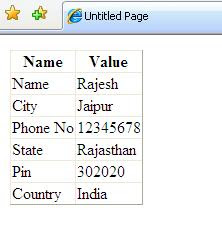| Extended Date Formats |
| Date Format | SQL Statement | Sample Output |
| YY-MM-DD | SELECT SUBSTRING(CONVERT(VARCHAR(10), GETDATE(), 120), 3, 8) AS [YY-MM-DD] SELECT REPLACE(CONVERT(VARCHAR(8), GETDATE(), 11), '/', '-') AS [YY-MM-DD] | 99-01-24 |
| YYYY-MM-DD | SELECT CONVERT(VARCHAR(10), GETDATE(), 120) AS [YYYY-MM-DD] SELECT REPLACE(CONVERT(VARCHAR(10), GETDATE(), 111), '/', '-') AS [YYYY-MM-DD] | 1999-01-24 |
| MM/YY | SELECT RIGHT(CONVERT(VARCHAR(8), GETDATE(), 3), 5) AS [MM/YY]
SELECT SUBSTRING(CONVERT(VARCHAR(8), GETDATE(), 3), 4, 5) AS [MM/YY] | 08/99 |
| MM/YYYY | SELECT RIGHT(CONVERT(VARCHAR(10), GETDATE(), 103), 7) AS [MM/YYYY] | 12/2005 |
| YY/MM | SELECT CONVERT(VARCHAR(5), GETDATE(), 11) AS [YY/MM] | 99/08 |
| YYYY/MM | SELECT CONVERT(VARCHAR(7), GETDATE(), 111) AS [YYYY/MM] | 2005/12 |
| Month DD, YYYY 1 | SELECT DATENAME(MM, GETDATE()) + RIGHT(CONVERT(VARCHAR(12), GETDATE(), 107), 9) AS [Month DD, YYYY] | July 04, 20061 |
| Mon YYYY1 | SELECT SUBSTRING(CONVERT(VARCHAR(11), GETDATE(), 113), 4, 8) AS [Mon YYYY] | Apr 2006 1 |
| Month YYYY 1 | SELECT DATENAME(MM, GETDATE()) + ' ' + CAST(YEAR(GETDATE()) AS VARCHAR(4)) AS [Month YYYY] | February 2006 1 |
| DD Month1 | SELECT CAST(DAY(GETDATE()) AS VARCHAR(2)) + ' ' + DATENAME(MM, GETDATE()) AS [DD Month] | 11 September 1 |
| Month DD1 | SELECT DATENAME(MM, GETDATE()) + ' ' + CAST(DAY(GETDATE()) AS VARCHAR(2)) AS [Month DD] | September 11 1 |
| DD Month YY 1 | SELECT CAST(DAY(GETDATE()) AS VARCHAR(2)) + ' ' + DATENAME(MM, GETDATE()) + ' ' + RIGHT(CAST(YEAR(GETDATE()) AS VARCHAR(4)), 2) AS [DD Month YY] | 19 February 72 1 |
| DD Month YYYY 1 | SELECT CAST(DAY(GETDATE()) AS VARCHAR(2)) + ' ' + DATENAME(MM, GETDATE()) + ' ' + CAST(YEAR(GETDATE()) AS VARCHAR(4)) AS [DD Month YYYY] | 11 September 2002 1 |
| MM-YY | SELECT RIGHT(CONVERT(VARCHAR(8), GETDATE(), 5), 5) AS [MM-YY]
SELECT SUBSTRING(CONVERT(VARCHAR(8), GETDATE(), 5), 4, 5) AS [MM-YY] | 12/92 |
| MM-YYYY | SELECT RIGHT(CONVERT(VARCHAR(10), GETDATE(), 105), 7) AS [MM-YYYY] | 05-2006 |
| YY-MM | SELECT RIGHT(CONVERT(VARCHAR(7), GETDATE(), 120), 5) AS [YY-MM]
SELECT SUBSTRING(CONVERT(VARCHAR(10), GETDATE(), 120), 3, 5) AS [YY-MM] | 92/12 |
| YYYY-MM | SELECT CONVERT(VARCHAR(7), GETDATE(), 120) AS [YYYY-MM] | 2006-05 |
| MMDDYY | SELECT REPLACE(CONVERT(VARCHAR(10), GETDATE(), 1), '/', '') AS [MMDDYY] | 122506 |
| MMDDYYYY | SELECT REPLACE(CONVERT(VARCHAR(10), GETDATE(), 101), '/', '') AS [MMDDYYYY] | 12252006 |
| DDMMYY | SELECT REPLACE(CONVERT(VARCHAR(10), GETDATE(), 3), '/', '') AS [DDMMYY] | 240702 |
| DDMMYYYY | SELECT REPLACE(CONVERT(VARCHAR(10), GETDATE(), 103), '/', '') AS [DDMMYYYY] | 24072002 |
| Mon-YY 1 | SELECT REPLACE(RIGHT(CONVERT(VARCHAR(9), GETDATE(), 6), 6), ' ', '-') AS [Mon-YY] | Sep-02 1 |
| Mon-YYYY1 | SELECT REPLACE(RIGHT(CONVERT(VARCHAR(11), GETDATE(), 106), 8), ' ', '-') AS [Mon-YYYY] | Sep-2002 1 |
| DD-Mon-YY 1 | SELECT REPLACE(CONVERT(VARCHAR(9), GETDATE(), 6), ' ', '-') AS [DD-Mon-YY] | 25-Dec-05 1 |
| DD-Mon-YYYY 1 | SELECT REPLACE(CONVERT(VARCHAR(11), GETDATE(), 106), ' ', '-') AS [DD-Mon-YYYY] | 25-Dec-20051 |








0 comments: